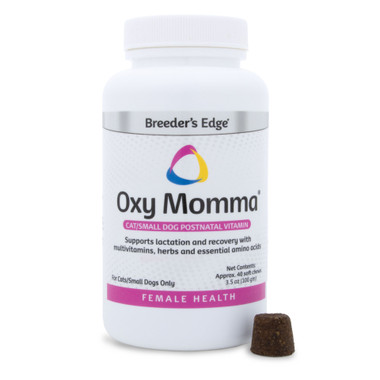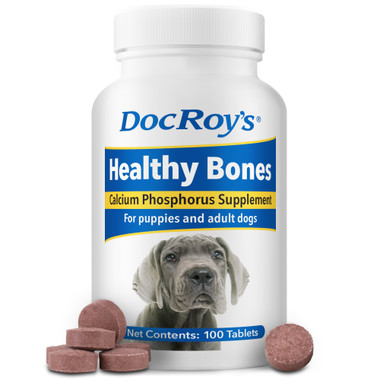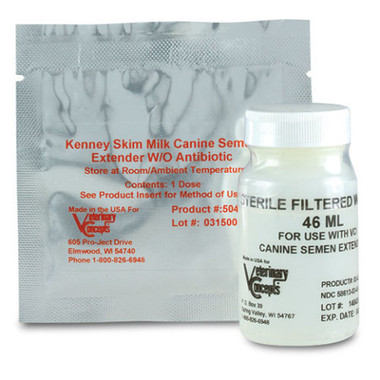The Best Meats for Dogs
Estimated 0 min read

Choosing the best meat for dogs
In the world of canine nutrition, meat reigns supreme.
But with so many options available, how do you know which protein source is best for your furry friend? From traditional favorites like chicken and beef to novel proteins like venison and bison, each meat brings its own unique benefits to your dog’s bowl.
Understanding the nutritional profiles of different meats and how they align with your dog’s specific needs can make all the difference in their health and happiness.
Let’s explore the meaty facts about canine nutrition and uncover the best protein sources to keep your pup’s tail wagging.
What to Know about the Best Meats for Dogs
- Dogs are biologically adapted to digest meat efficiently, with meat providing essential amino acids, vitamins, and minerals crucial for overall health
- Different meats offer varying nutritional profiles – chicken is lean and protein-rich, beef provides healthy fats, salmon is high in omega-3s, while novel proteins like venison can benefit dogs with allergies
- Choosing the right meat depends on factors like your dog’s age, health status, and nutritional needs, with AAFCO guidelines recommending different protein levels for various life stages
Why Meat Matters for Your Dog’s Diet

Dog chewing on meat
When it comes to our furry friends, there’s no denying their enthusiasm for a juicy piece of meat. Dogs have a biological predisposition for consuming meat that dates back to their wolf ancestors. Meat provides dogs with a wealth of essential nutrients that are crucial for their overall health and well-being.
One of the primary benefits of meat in a dog’s diet is its enhanced digestibility. The protein structures in meat are more easily broken down and absorbed by a dog’s digestive system compared to plant-based proteins. This means that when your pup chows down on a meaty meal, their body can efficiently extract and utilize a higher percentage of the nutrients present, leading to less waste and more nutritional bang for your buck.
Meat is also a powerhouse of amino acids, the building blocks of proteins that dogs cannot produce on their own. These amino acids play critical roles in things from building and repairing tissues to supporting immune function and hormone production. Beyond proteins and amino acids, meat is a rich source of vital vitamins and minerals.
This is why a diet rich in high-quality meat can contribute to a glossy coat, strong muscles, robust immune system, and overall vitality in our canine companions. While dogs can certainly digest some plant matter and benefit from a balanced diet, the importance of meat in meeting their core nutritional requirements cannot be overstated.
Best Meats for Dogs

Bowl of different meat types for dog
When it comes to filling your furry friend’s bowl with nutritious goodness, not all meats are created equal. Let’s sink our teeth into some of the most popular meat options that can keep your dog’s tail wagging and health thriving.
The Benefits of Chicken for Dogs
Chicken has long been a staple in both human and canine diets, and for good reason. This versatile white meat is a lean protein powerhouse, packing a nutritional punch without the extra fat. Rich in essential amino acids, chicken supports muscle development and maintenance, making it an excellent choice for active dogs or those recovering from injury.
But chicken’s benefits don’t stop at protein. It’s also a good source of glucosamine, which supports joint health, and niacin, a B vitamin that aids dogs’ metabolism. However, it’s important to note that chicken is one of the more common food allergens for dogs. If your pup starts showing signs of food sensitivity, it might be time to explore other protein options.
The Benefits of Beef for Dogs
Red meat like beef is not only delicious to most dogs but also incredibly nutrient-dense. Packed with high-quality protein, beef helps maintain strong muscles and supports overall body function. It’s also rich in healthy fats, including omega-3 and omega-6 fatty acids, which contribute to a shiny coat and healthy skin.
Beef is a treasure trove of essential vitamins and minerals. It’s an excellent source of iron, which is crucial for oxygen transport in the blood, and zinc, which supports immune function and wound healing. The B12 vitamins found in beef also play a vital role in nervous system function and energy metabolism.

Dog with bowl of meat
One of the beauties of beef is the variety of cuts available, each with its own nutritional profile. Leaner cuts like sirloin can be great for weight management, while fattier cuts might be beneficial for working dogs or those needing to gain weight. The quality of beef can vary widely, so opt for high-grade, preferably grass-fed options when possible.
The Benefits of Turkey for Dogs
For dogs watching their waistlines or those with sensitive stomachs, turkey can be a fantastic option. This poultry is leaner than chicken and provides an excellent source of easily digestible protein. Turkey is rich in essential amino acids, particularly tryptophan, which plays a role in producing serotonin.
Beyond its protein content, turkey is also a good source of riboflavin and phosphorus. Riboflavin supports your dog’s metabolism and helps maintain healthy skin, coat, and nails. Phosphorus works alongside calcium to maintain strong bones and teeth. The lower fat content of turkey also makes it ideal for dogs prone to pancreatitis or those needing a low-fat diet for other health reasons.
The Benefits of Lamb for Dogs
Lamb has become increasingly popular in dog foods, especially for those with food sensitivities. As a less common protein source, lamb can be an excellent alternative for dogs who have developed allergies to chicken or beef. Despite its rich flavor, lamb is surprisingly easy on the digestive system, making it a good choice for dogs with sensitive stomachs.

Dog with meat in mouth
Nutritionally, lamb holds its own against other meats. It’s an excellent source of high-quality protein and contains a higher proportion of essential amino acids compared to some other meats. Lamb is also rich in B vitamins, particularly B12, as well as zinc and iron. The zinc content supports immune function and skin health, while its iron content aids in oxygen transport throughout the body.
The Benefits of Pork for Dogs
Often overlooked in canine diets, pork can be a tasty and nutritious option for your four-legged friend. Pork is highly digestible and provides a complete protein profile, containing all the essential amino acids your dog needs. It’s particularly rich in thiamine, a B vitamin that plays a crucial role in carbohydrate metabolism and neural function.
Pork also brings some unique nutritional benefits to the bowl. It’s an excellent source of selenium, an antioxidant mineral that supports thyroid function and helps protect cells from damage.
However, it’s important to note that pork is often higher in fat than other meat options. While this can make it a good choice for active dogs or those needing to gain weight, it might not be suitable for overweight pups or those prone to pancreatitis. When preparing pork for your dog, always ensure it’s thoroughly cooked to avoid any risk of parasites.

Fish versus other meats
As we’ve seen, each of these popular meat options brings its own unique set of benefits to your dog’s diet. But the protein parade doesn’t stop here. There’s a whole world of fishy goodness that can add another dimension to your dog’s nutritional profile.
The Best Fish to Feed Dogs
When it comes to diversifying your dog’s diet, don’t let fish swim under your radar. These aquatic protein sources can offer a sea of benefits for your canine companion, bringing unique nutritional profiles to the bowl that can complement traditional meat options.
The Benefits of Salmon for Dogs
Salmon is a nutritional goldmine for our four-legged friends. This pink-fleshed fish is renowned for its high content of omega-3 fatty acids, particularly EPA (eicosapentaenoic acid) and DHA (docosahexaenoic acid).
The omega-3s in salmon are particularly beneficial for your dog’s skin and coat health. They help reduce inflammation, which can alleviate symptoms of allergies and skin irritations, leading to a shinier, healthier coat. But the benefits don’t stop at the surface. These fatty acids also support cognitive function, potentially helping to keep your dog’s mind sharp as they age. For senior dogs or those with joint issues, the anti-inflammatory properties of omega-3s can help ease discomfort and improve mobility.
Beyond its fatty acid content, salmon is an excellent source of high-quality protein, essential for muscle maintenance and overall body function. It’s also rich in vitamins B12 and D, as well as selenium, all of which contribute to a robust immune system and overall health.
When it comes to preparing salmon for your dog, cooking is crucial. Raw salmon can contain parasites that are harmful to dogs, so always ensure it’s thoroughly cooked. Baking or grilling without additional oils or seasonings is ideal.

Dog eating dog food with fish
The Benefits of Whitefish for Dogs
While salmon often steals the spotlight in the fish world, whitefish deserves its moment in the sun when it comes to canine nutrition. The term “whitefish” typically encompasses a variety of fish species, including cod, haddock, and pollock. These fish offer a lean, easily digestible protein source that can be particularly beneficial for certain dogs.
One of the standout features of whitefish is its low fat content. This makes it an excellent option for dogs who need to watch their weight or those with sensitive stomachs who might struggle with fattier protein sources. Despite being low in fat, whitefish doesn’t skimp on protein, providing all the essential amino acids your dog needs for muscle maintenance and overall health.
Whitefish is also a good source of vitamins and minerals. It’s rich in B vitamins, particularly niacin, vitamin B12, selenium, and phosphorus, all of which contribute to a healthy immune system and strong bones.
For dogs with food sensitivities or allergies to more common protein sources like chicken or beef, whitefish can be a welcome alternative. Its novel protein status for many dogs means it’s less likely to trigger allergic reactions, making it a go-to option for dogs with food sensitivities.
Moreover, the mild flavor of whitefish can be appealing to picky eaters. If you have a dog that turns their nose up at other protein sources, whitefish might just be the ticket to get them excited about mealtime again.
When preparing whitefish for your dog, like salmon, it’s important to cook it thoroughly. Steaming or baking without added fats or seasonings is ideal. While commercial dog foods often include whitefish as an ingredient, you can also offer it as an occasional treat or meal topper to add variety to your dog’s diet.
Other Types of Meat to Feed Dogs

Venison or bison meat are alternatives
As more dog owners become aware of their pets’ unique dietary needs, the world of canine nutrition has expanded to include some intriguing alternatives to traditional meats. These novel protein sources can offer exciting benefits for dogs with specific health concerns or those simply in need of a dietary shake-up.
The Benefits of Venison for Dogs
Venison, or deer meat, has become increasingly popular in the world of dog nutrition. As a novel protein source, venison is less likely to trigger reactions in dogs. This makes it an excellent option for dogs to meet their protein needs without causing digestive upset or skin irritations.
But venison’s benefits go beyond its hypoallergenic properties. This lean meat boasts an impressive nutritional profile that can contribute to your dog’s overall health. Venison is rich in vitamin B12 and niacin and is also an excellent source of iron and zinc.
One of the standout features of venison is its high protein content relative to its fat content. This makes it an ideal choice for dogs who need to maintain lean muscle mass without packing on extra pounds. The protein in venison is highly digestible, meaning your dog’s body can efficiently use it for muscle repair and maintenance.
The Benefits of Bison for Dogs
Bison, often referred to as buffalo, is another alternative protein source that’s gaining traction in the dog food world. Like venison, bison is a lean meat that packs a serious protein punch without excess fat. This makes it an excellent option for dogs who need to maintain or build muscle mass while keeping their calorie intake in check.
The nutritional profile of bison is impressive. It’s rich in essential amino acids, the building blocks of protein that dogs need for various bodily functions. Bison is also a good source of iron, which is crucial for oxygen transport in the blood, and selenium, an antioxidant mineral that supports immune function and thyroid health.
One of the advantages of bison is its increasing availability in commercial dog foods. As more pet food manufacturers recognize the benefits of this novel protein, it’s becoming easier for dog owners to incorporate bison into their pets’ diets without having to source and prepare the meat themselves. This accessibility makes bison a convenient option for those looking to diversify their dog’s protein intake.

Duck meat also a nutritious option
The Benefits of Duck for Dogs
For the canine connoisseur with a discerning palate, duck can be an enticing protein option. Known for its rich, flavorful meat, duck can be a game-changer for picky eaters who turn their noses up at other protein sources. The unique taste and texture of duck can make mealtime more exciting for dogs who have grown bored with their usual fare.
Nutritionally, duck holds its own against other poultry options. It’s a good source of complete protein, providing all the essential amino acids your dog needs. Duck is also rich in iron and zinc, supporting healthy blood function and immune system performance. The B vitamins found in duck, particularly niacin and pyridoxine, contribute to energy metabolism and nervous system health.
However, it’s important to note that duck is higher in fat compared to many other protein sources. While this can make it highly palatable for dogs, it also means that duck should be fed in moderation, especially to dogs prone to weight gain or those with conditions like pancreatitis. The higher fat content can be beneficial for active dogs or those needing to gain weight, but portion control is key.
When incorporating duck into your dog’s diet, whether through commercial dog food or home-prepared meals, it’s crucial to ensure it’s properly cooked and free from seasonings or additives that could be harmful to your pet. As with any dietary change, it’s wise to introduce duck gradually and monitor your dog for any signs of digestive upset.
These novel and alternative protein sources offer exciting possibilities for diversifying your dog’s diet and addressing specific nutritional needs. Whether you’re dealing with food allergies, trying to entice a picky eater, or simply looking to provide a wider range of nutrients, these options can be valuable additions to your canine nutrition toolkit. As we continue to explore the world of canine cuisine, it’s clear that when it comes to feeding our furry friends, thinking outside the traditional meat box can lead to some tail-wagging results.

Which meat is best?
How to Pick the Best Meat for Your Dog
Age is crucial in determining your dog’s dietary needs. Puppies require higher protein intake to support rapid growth and development. The Association of American Feed Control Officials (AAFCO) recommends puppy food contain a minimum of 22% protein on a dry matter basis. As dogs mature, AAFCO recommends a minimum of 18% for adult maintenance diets.
Your dog’s health status is another vital consideration. Dogs with certain health conditions may require specific protein profiles. For instance, dogs with kidney disease often benefit from lower protein diets, while active or working dogs may need higher protein levels. The biological value of the protein source also matters, with meats like eggs or muscle meats being more efficiently utilized by the dog’s body.
Allergies and food sensitivities can significantly impact your choice of meat. While true food allergies are relatively rare in dogs, common culprits include beef and chicken. Many pet owners turn to novel proteins like venison, duck, or bison for dogs with suspected food allergies. However, it’s crucial to work with your veterinarian to properly diagnose a food allergy before making significant dietary changes.
The quality of the protein source is just as important as the quantity. High-quality, easily digestible proteins allow for better nutrient absorption and utilization. Meats like chicken, beef, and fish generally have high biological values, but processing methods in commercial dog foods can affect protein quality.
Given the complexity of canine nutrition, consulting with a veterinarian is invaluable when selecting the right meat for your dog. Veterinarians can provide personalized recommendations based on your dog’s specific needs, help interpret pet food labels, and guide you on introducing new protein sources to your dog’s diet.
As you explore the best meat options for your canine companion, remember that nutrition is just one piece of the puzzle in keeping your dog happy and healthy. From proper grooming to regular exercise, there are many facets to canine well-being.
Banixx for Dog Lovers
At Banixx, we’re committed to providing you with the knowledge and resources you need to ensure your furry friend lives their best life. Whether you’re dealing withskin issues,ear problems, or just looking for general health tips, we’ve got you covered.
Explore ourblogfurther and discover more ways to show your four-legged friend just how much you care. If you are interested in how to maintain yourdog’s nails/claws, orhandle hot spots, we cover that. Or are you interested in more quirky items ? such ashow long can a dog go without peeing, orWhy does my dog drink from a toilet?
Keep checking back with us for more expert advice on all aspects of dog care. Together, we can make sure your four-legged family member thrives, one meal – and one day – at a time.
Sources
https://www.vet.cornell.edu/departments-centers-and-institutes/riney-canine-health-center/canine-health-information/re-evaluating-your-dogs-diet
https://www.thehonestkitchen.com/blogs/pet-food-ingredients/healthy-meat-for-dogs
communitycarecollege.edu/veterinary-assistant/pet-nutrition
vetmed.illinois.edu/pet-health-columns/whats-the-right-diet-your-dog


















